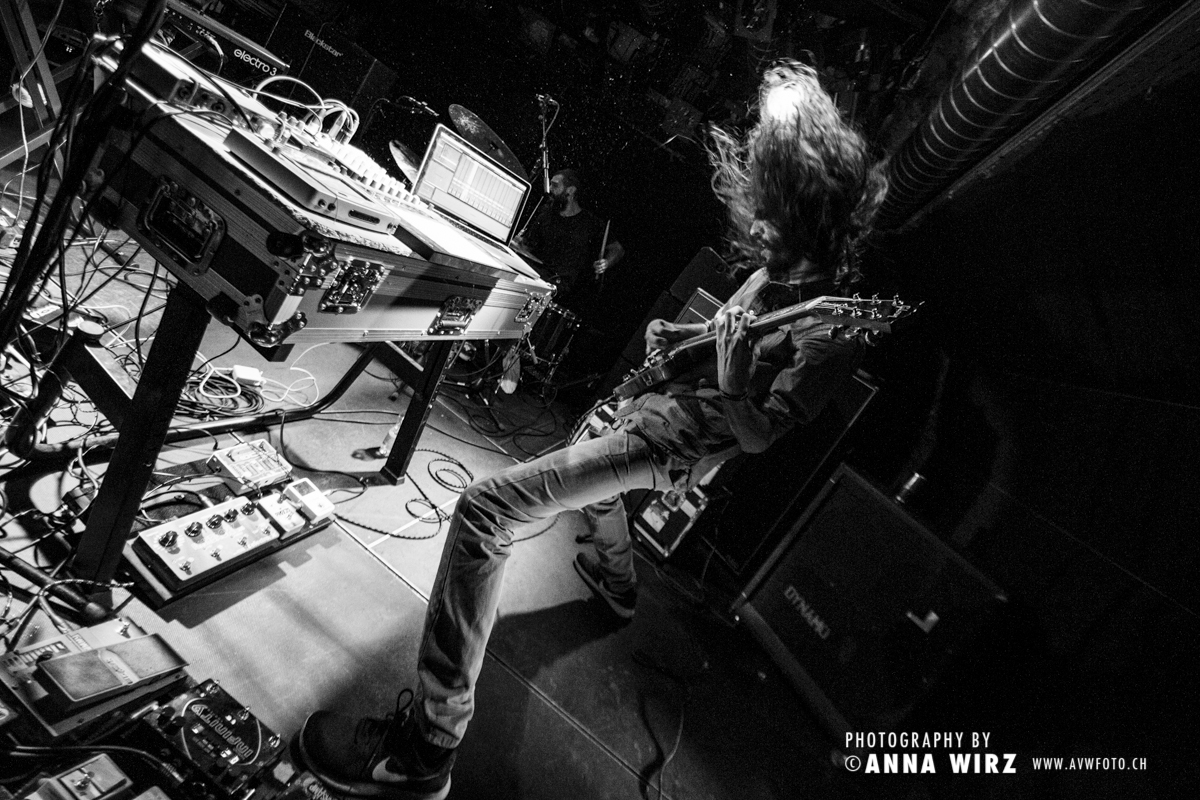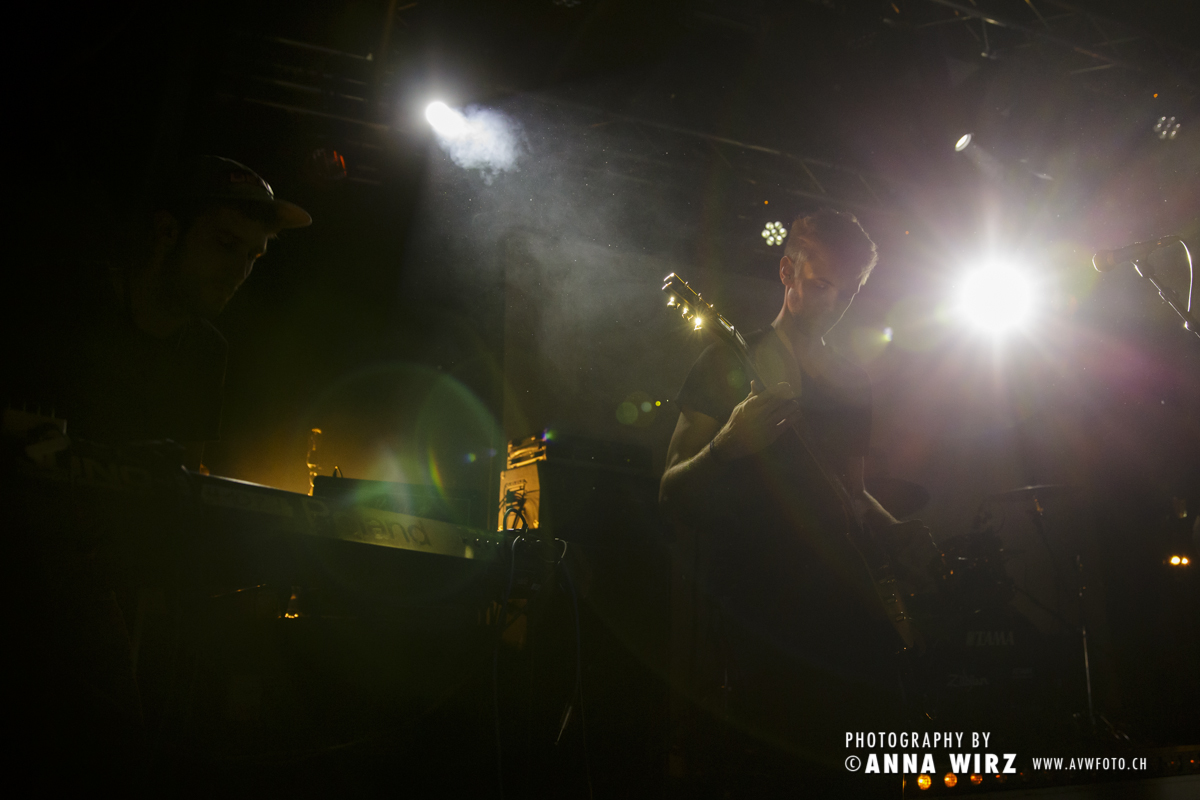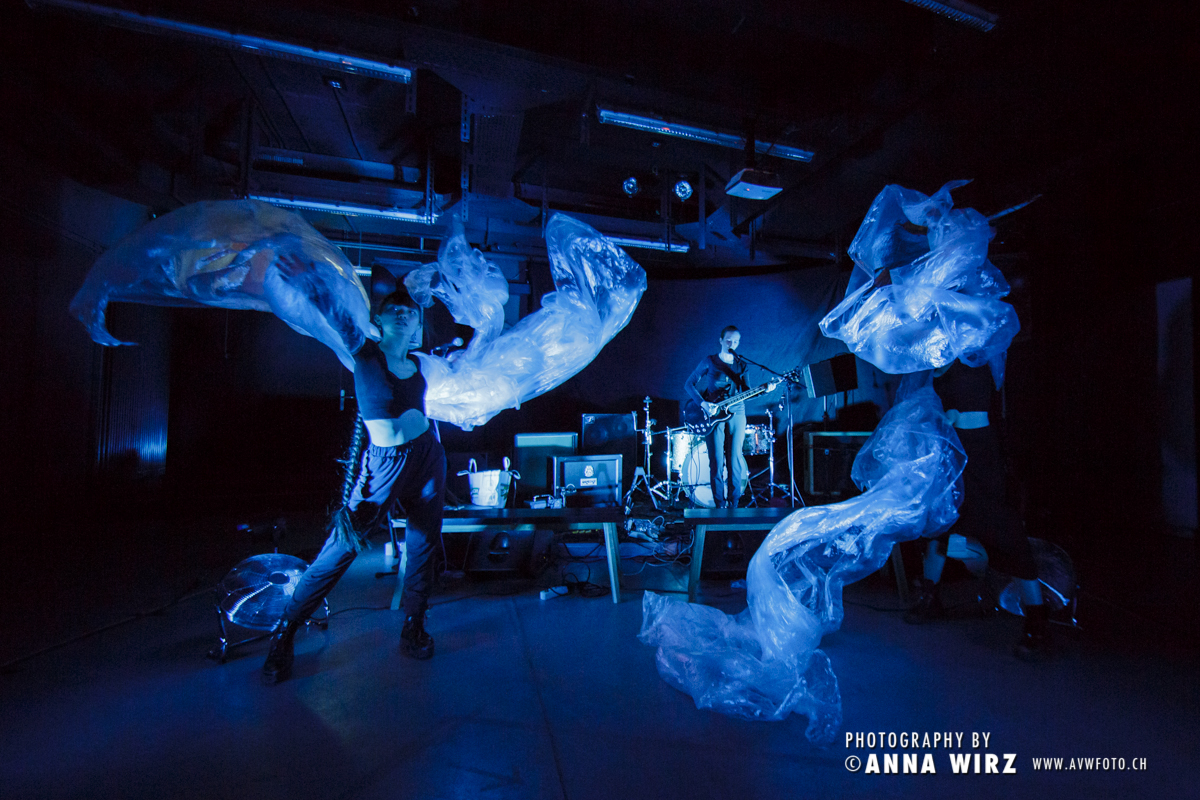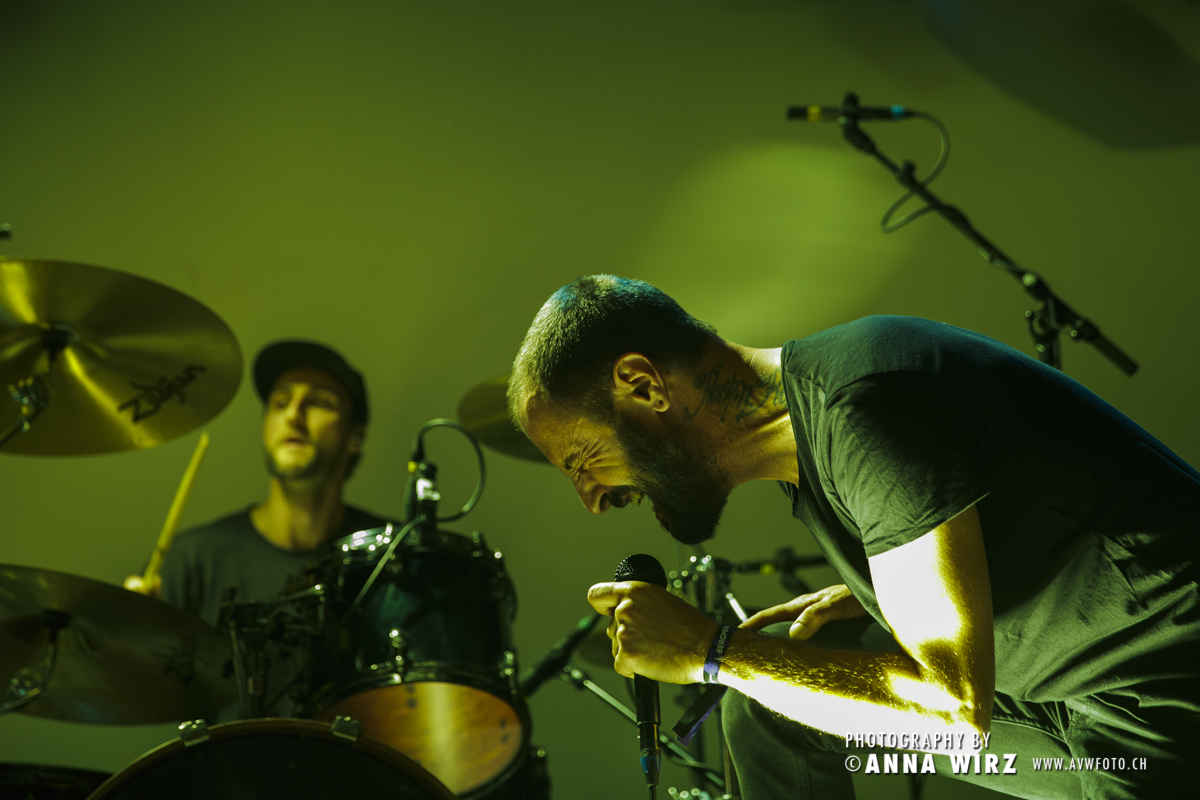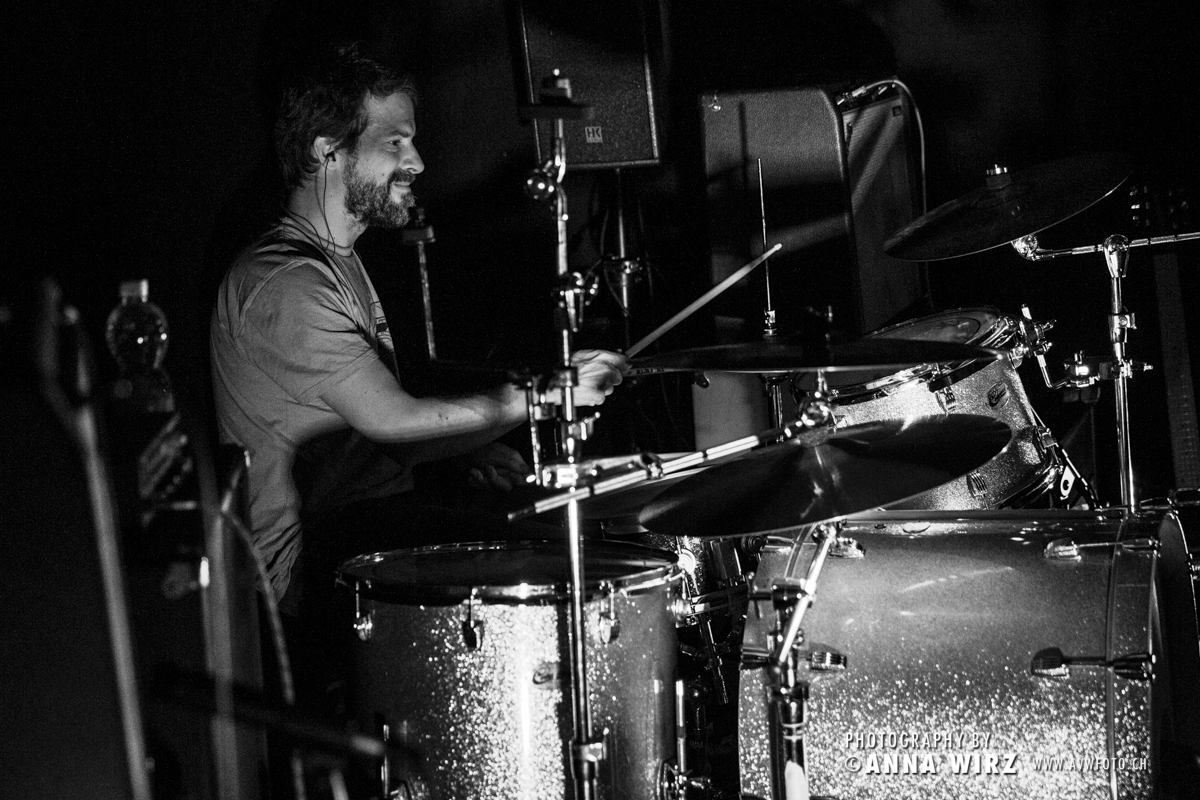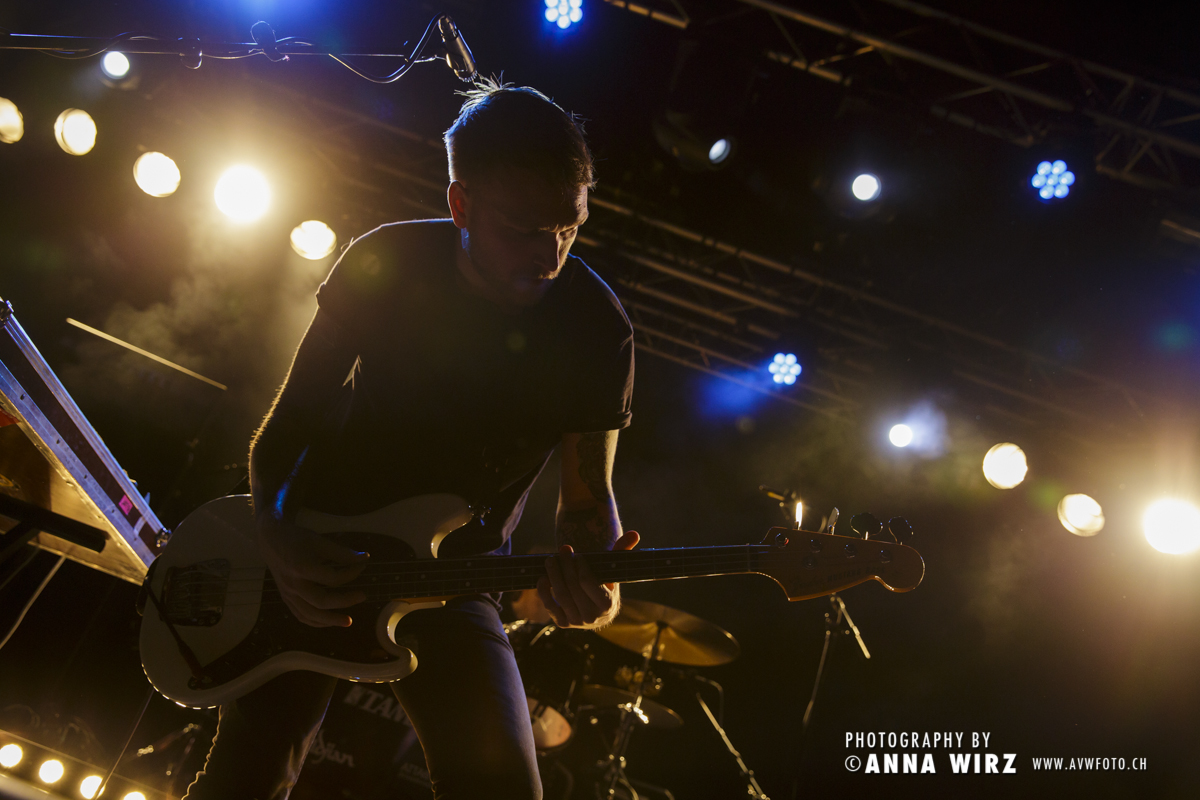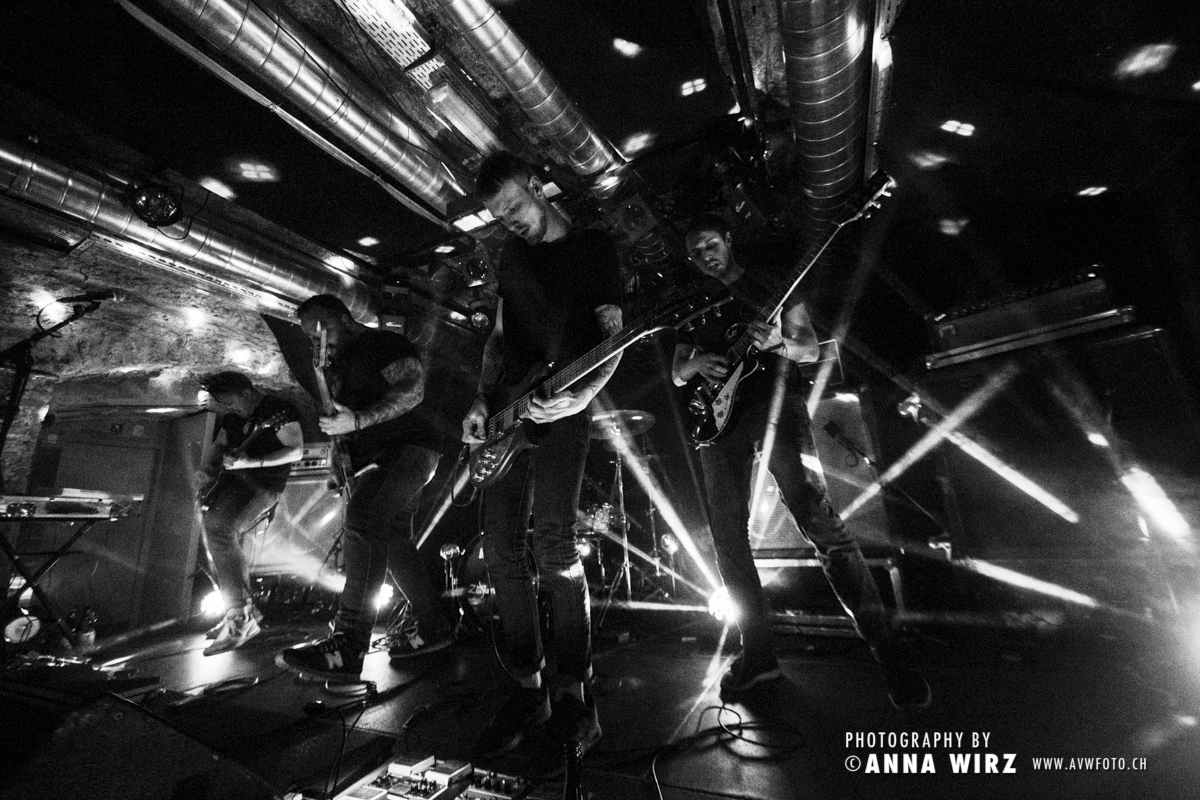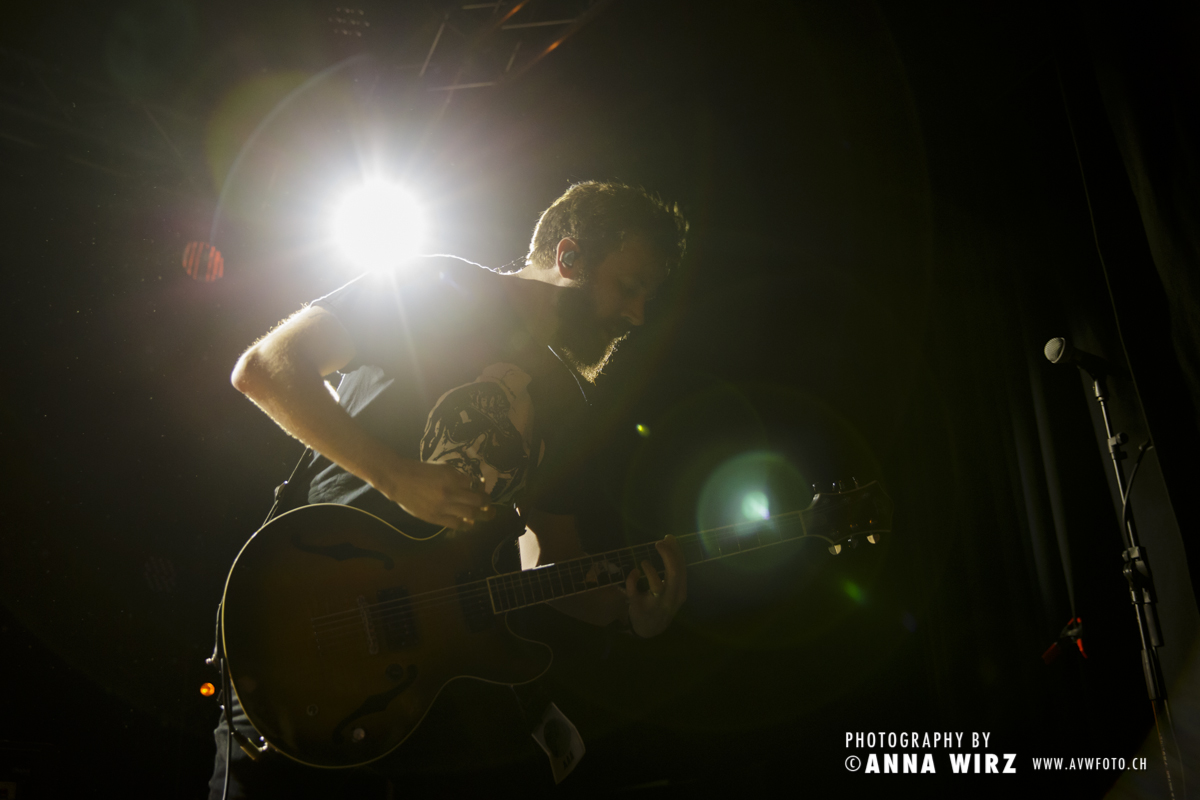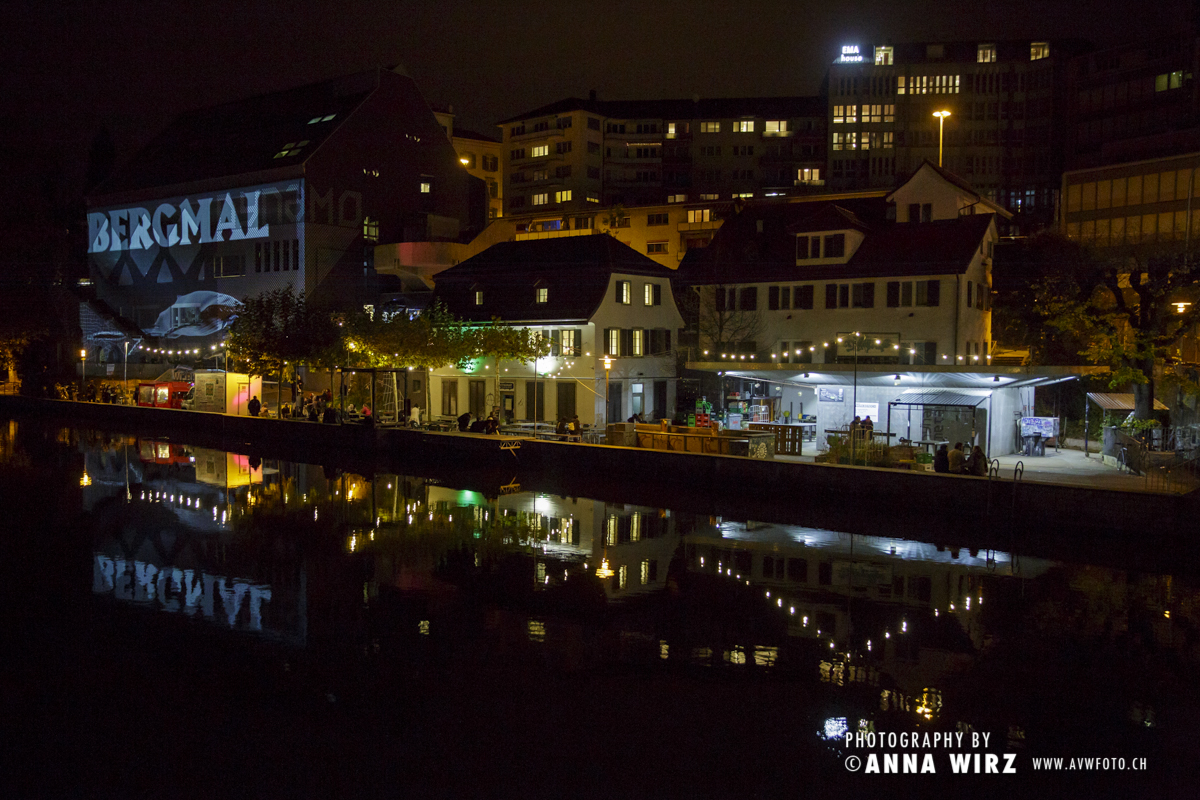Bergmal Post-Rock Festival 2017 - The Dark Sequel
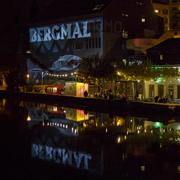
Switzerland's signature (and only) post-rock festival Bergmal returned to the Dynamo Zürich from its deep ocean slumber, something of a different beast and yet recognisably the same old whale of a time. Good sequels are hard to come by, but this certainly was one of them. This was the festival's dark sequel; Bergmal II: The Metal Strikes Back. With an overall heavier tone but ample stylistic deviation, this was the Bergmal team's variation on a theme; a breadcrumb trail through the many facets of today's alternative/post-rock subgenres.
The night began with aplomb and a bang with Valerian Swing, an Italian trio of self-proclaimed 'lunatics' crafting a very unique angle on the math/experimental rock subgenre. Jazz-style drumming à la Birdman found itself torn apart and pieced back together, mixed with meaty discordant riffs provided by the guitarists (and occasionally seasoned with some classic 1970s prog-rock arpeggios), in this unpredictable fuse-lighting act to kick off the festival. Warning: math may be needed to understand the multidimensional time signatures of their songs.
Basel was represented by Amorph, a more accessible and upbeat interpretation of that vaguely undefined 'post-rock sound'. Taking on perhaps more of a post-pop/general indie rock feeling akin to Foals (see Holy Fire) with their clean, modern production style, they demonstrated the notable addition of singing that was actually allowed the space to breathe without the many introverted layers of distortion and vocoding that so often accompany post-rock 'lyrics'. Taking from their latest album, the quality-radio-friendly Skin was a clear highlight, creating a wonderful and tasteful fusion of deep synthesised bass and poppy guitars with substantial and readily shifting rhythms, and unafraid to go heavy; much of which applies to the band's sound as a whole. Already at this point, the wider scope of this year's music selection was on full display.
While in the context of this particular subculture the name doesn't really seem that odd, Hopes and Venom still managed to be a relatively unusual act. Firstly, it is actually the musical moniker of St. Gallen multi-instrumentalist Skiba Shapiro, who performs guitar live to her pre-prepared compositions and atmospheres. Secondly, she was not alone on stage, as she was joined by two dancers with a fondness for large plastic bags. Despite the unusual set-up, the sound produced by such a small team (of one), blending haunting ethereal vocals with downtempo beats and delayed guitar, was at once vast and intimate and certainly emotional.
The arrival of the Poseidon's in-house German doom metal band was not easily left unnoticed, with The Ocean and their concept-driven, progressive post-metal music taking the main stage, complete with projected underwater scenes and bright incandescent filament bulbs evoking a fascinating drowning metallic take on the Jules Verne atmosphere. Intricate virtuoso riffs and the mandatory guttural screaming that typify that m-word were demonstrated with utter confidence and skill as The Ocean gave the Bergmal audience their first real cathartic head-banging session of the night, while the piano interludes and slow orchestral breaks recollected Between The Buried and Me (see The Great Misdirect) or perhaps Ghinzu.
While occasionally having to face their own technical difficulties (a dead bass - not the fish, that is - and a misbehaving delay pedal for example), Maïak were far from the nuclear disaster alluded to in their name. When they were finally on their feet, the French-Swiss quartet let loose with a raw and powerful take on the epic atmospheric riffs of post-rock, with plenty of feedback and overdrive to give substance to their waltzes of doom and destruction. Esoteric audio samples also made a mood-setting appearance as the band built to a Mogwai-esque combination of heavy noise rock and deep sorrow and melancholy. The stunning album closer We All Live In A Yellow Kursk was full of energy and force, and while lacking the sheen and some of the aural high-end of the studio version, drew much love and enthusiastic cheering from the audience. Side note: disasters seem to inspire much post-rock music; the Kursk submarine disaster is also referenced by Explosions In The Sky on their album The Earth Is Not A Cold Dead Place.
Weaving ambient atmospheres mostly through repetition, pg.lost risked sounding too repetitive without really building to anything, though on tracks like Vultures they most certainly delivered the goods. It can be a hard thing to go for the slow-burn, with few bands (notably Godspeed You! Black Emperor) able to bring the required emotion to maintain engagement. The "Swedish Experimental Instrumentalists" were at their best with their livelier pieces, seemingly stemming from 2012's Key, and when their large scale sound worked, it really worked.
Back underground now (perhaps because the weight of the sound might have toppled the building were they on the roof stage) for Kokomo, another heavy item from Germany. Generating drones the old-fashioned way, dozens of foot pedals and furious strumming, the five-piece band cast plenty of jet-fuel onto the fire; the audience casting deformed shadows up the tunnel walls as they filled the air with sheer driving power. While their song titles (see I'm Bill Murray and I'm Not Dead, a possible Mogwai reference) hint at a wry humour behind the scenes, sorrow and remorse pervaded their walls of noise. It is amazing what three to four fragile notes can achieve when played with such force and depth, much like festival-fellow Maïak.
Off to Spain on the international post-rock journey with Astralia (not to be confused with sleepmakeswaves' home country of Australia), as the dark and stormy atmosphere of the evening continued to brood. While not as brutally intense or noisy as Maïak and Kokomo, Astralia nonetheless constructed imposing luciferian towers of melody and vast landscapes of sound through their delay-heavy guitars and motorik drumming. World-weary drones played a large role for a small band (two guitarists and one drummer), as their hypnotic æther enthralled the tight-knit crowd of the Experimental Stage.
The final performance of the evening (for this reviewer) was that of the delicate and bombastic sleepmakeswaves all the way from Down Under. While they perhaps did sleep on the plane flight back home (having finished an extensive European tour), there was little chance that these waves would do anything but prevent sleep as the band erupted onto the main stage with a more hopeful version of the aggression prevailing at the festival.
Hugely dynamic, their modus operandi was epitomised by one particular ambient synthesiser interlude where each band member stared off into the middle distance before blowing apart the walls of solemnity with earth- and soul-shattering metallic riffs and warring drums. Rhythmic electronics, arps and otherwise, rode the oceanic tide of throbbing bass and screeching lead guitars as the prog-metal riffs grew with the weight of memories evoked by the EBowed drones.
Gears shifted radically from ambient piano and synth pads to Russian Circles-style fast-paced drumming as the constructs of sound and rhythm, and the band's fusion of electronic and post-metal, cracked apart not unlike the icy artwork depicted on their latest album (Made of Breath Only, showing a glacier breaking apart into the ocean). Respect flowed both ways as the audience and the band members showed equal gratitude and excitement for the communal musical experience; cheers and drones, drums and dancing, this was truly a celebration of a common love for music.
Here We Go Again
This year's Bergmal featured another great display of post-rock and variations thereof across the experimental and alternative rock fields, with a truly international range of acts and a very high standard of performance.
Not discussed here was a reading of the new book Fearless: The Making of Post-Rock by UK author Jeanette Leech in-person, as well as the performances by TTNG, Lost in Kiev, Rue Des Cascades and When The Light Dies due to time constraints; however their presence on the line-up shows that for a small festival in only its second year, Bergmal seems to have some weight to throw around in getting big-name acts (relatively speaking, this is post-rock after all) in on the show.
Once again, this festival has proved to be just the right size: small enough to feel intimate and independent, and large enough to be significant in the small world of post-rock; and certainly one well worth setting time aside for in the coming years.
- Miles Prinzen
More photos of the Bergmal Festival 2017 by Anna Wirz on Flickr.



 This summer, trade your couch for a field and your playlist for a live band. Gather in open fields to listen to loud music and bust out questionable dance moves. Music festivals are back, featuring sun (hopefully), mud (probably), and bands you’ll claim to have discovered first. It’s a celebration of sound, sing-alongs, and Alpine views. Pack sunscreen and wellies and prepare to lose your voice.
This summer, trade your couch for a field and your playlist for a live band. Gather in open fields to listen to loud music and bust out questionable dance moves. Music festivals are back, featuring sun (hopefully), mud (probably), and bands you’ll claim to have discovered first. It’s a celebration of sound, sing-alongs, and Alpine views. Pack sunscreen and wellies and prepare to lose your voice.